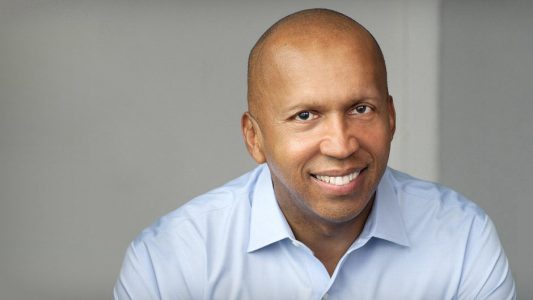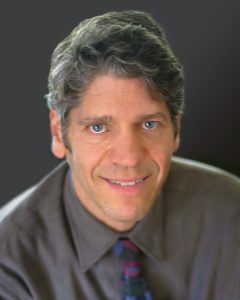The theme for this year’s symposium, “…and Justice for All,” will highlight efforts to combat injustice, to reform systems, and to replicate positive change in the state of Alabama. Educational sessions will cover a range of topics, including environmental justice, economic justice, criminal justice, and others areas. Our hope is to inspire symposium participants to take informed action on their values through active citizenship to address systemic injustice. Throughout the event, our content sessions and discussions will highlight issues of relevance both to the state of Alabama and the nation. This year’s event continues traditions familiar to those who have attended symposium in the past, builds on successful recent innovations, and re-formats the content session blocks for a wider range of topics and session styles. Attendees will see opportunities for both peer gatherings and full-community networking through meals, planning sessions, and dialogue activities.
Friday, August 25 – Saturday, August 26
This year’s event will be held at two locations in Tuscaloosa, Alabama: Bryant Conference Center and Ferguson Student Center.
Program Guide
Includes schedule, session descriptions, attendees, venue, hotel, and parking information.
Keynote Speakers (Frank A. Nix Lecture Series)
Two of the many highlights for the weekend will be public lectures delivered at the opening and closing events for the symposium. Friday’s opening address will feature author Paul Rogat Loeb at the Bryant Conference Center and Saturday’s closing address will feature attorney Bryan Stevenson at the Ferguson Student Center.
Bryan Stevenson: Closing Public Lecture
Saturday, August 26 – 3:15 – 4:15 p.m. (Book signing and reception to follow 4:45 – 5:30 p.m.)
Ferguson Student Center – Ferguson Ballroom (note new location)

Bryan Stevenson is the founder and Executive Director of the Equal Justice Initiative and one of the most acclaimed and respected lawyers in the nation. His memoir, Just Mercy, is the story of a young lawyer fighting on the frontlines of a country in thrall to extreme punishments and careless justice. It is an inspiring story of unbreakable humanity in the most desperate circumstances and a powerful indictment of our broken justice system and the twisted values that allow it to continue.
Nobel Peace Laureate Desmond Tutu has called Stevenson “America’s young Nelson Mandela.” His work on individual cases has generated national attention and his efforts have reversed death penalties for dozens of condemned prisoners. EJI recently won an historic ruling in the U.S. Supreme Court holding that mandatory life-without-parole sentences for all children 17 or younger are unconstitutional. Stevenson’s remarkable twenty-minute TED Talk on the subject of injustice has been viewed over 2.35 million times on the TED website and another 299k times on YouTube; The New Yorker named it one of five essential TED Talks.
After graduating from Harvard Law School in 1985, Stevenson moved to the South, a region on the verge of a crisis: the states were speeding up executions, but many of the condemned lacked anyone to represent them. On a shoestring budget, he started the Equal Justice Initiative, a law practice dedicated to defending some of America’s most rejected and marginalized people. The cases he took on would change Stevenson’s life and transform his understanding of justice and mercy forever.
Stevenson is the recipient of numerous awards, including the MacArthur Foundation “Genius” Grant and the NAACP Image Award for Best Non-Fiction, and was named one of Time’s 100 Most Influential People for 2015. Stevenson is a tenured law professor at New York University School of Law. Recently, he was named in Fortune’s 2016 World’s Greatest Leaders list.
For more information on this speaker, please visit Penguin Random House Speakers Bureau.
Co-sponsored by the Center for Service and Leadership and the Center for Social Ethics and Responsibility.
Paul Rogat Loeb: Opening Public Lecture
Friday, August 25 – 4 – 5 p.m. (Book signing and reception to follow 5:30 – 6:30 p.m.)
Bryant Conference Center – Rast B

Paul Rogat Loeb has spent forty years researching and writing about citizen responsibility and empowerment – asking what makes some people choose lives of social commitment, while others abstain. He has written five widely praised books, lectured to enthusiastic responses at over 400 colleges and universities around the country (including Harvard, Yale, Stanford, Chicago, and Columbia), and been a lead speaker at numerous conferences including the National Education Association, Education Commission of the States, American Society on Aging, American Bar Association, Points of Light Foundation, Engineers Without Borders, American Association of Colleges & Universities, National Association of Student Personnel Administrators, the national association of college honors programs, and Teach For America. Paul participated in the Department of Education’s 2011 roundtable on civic engagement in higher education. He founded the Campus Election Engagement Project, a national nonpartisan effort to get colleges to help their students participate in America’s elections. Starting their work with the 2014 midterm elections, the organization initially involved 280 campuses and has grown to over 300 campuses while preparing for the 2018 elections.
Loeb’s Soul of a Citizen: Living with Conviction in a Cynical Time (St. Martin’s Press, 2010) looks at what it takes to lead lives of social commitment despite all the obstacles. Children’s Defense Fund president Marian Wright Edelman wrote, “Soul of a Citizen helps us find the faith we need to act on our deepest beliefs – and keep on.” “I stayed up half the night reading Soul of a Citizen,” wrote Jonathan Kozol, “finding it a beautiful and morally transcendent work that speaks directly to the heart. The new edition is magnificent.” United Nations World Food Program Executive Director Josette Sheeran wrote, “When my daughter asked from college how to be an effective grassroots citizen, I gave her Paul’s book. The new edition is even more powerful.” The Chicago Sun-Times called it, “A passionate but reasoned call for Americans to become involved in issues that matter.” And Bill McKibben wrote, “Soul has been a powerful inspiration to citizens acting for environmental sanity, showing how they can take committed stands, even if they don’t know every last answer. The new edition is even more inspirational.” Soul now has over 150,000 copies in print through its two editions and is used on hundreds of campuses to create greater civic engagement.
Paul’s The Impossible Will Take a Little While: Perseverance and Hope in Troubled Times (Basic Books, 2014) has over 100,000 copies in print and is also being assigned at colleges and universities throughout the country. Teaching Tolerance called the book “a must read.” “Paul Loeb brings hope for a better world in a time when we so urgently need it,” wrote Habitat for Humanity founder Millard Fuller. Bill Moyers told Paul, “You are part of what’s good about this world and I admire your work very much. This book can even make one hopeful about the future despite so many signs to the contrary.” In naming The Impossible the #3 political book of 2004, The American Book Association & the History Channel concluded, “This might possibly be the most important collection of stories and essays you will ever read.” Both The Impossible and Soul won the Nautilus Award for best social change books of the year.
Co-sponsored by the Center for Service and Leadership and the Center for Social Ethics and Responsibility.
Registration
Blackburn community members (students, Fellows, Advisory Board, and Blackburn Society) and invited guests my resister through the event website on RegOnline.
No registration necessary for public lectures.
- Blackburn Fellows
- Early Registration – Before July 1, 2017 – $50
- Regular Registration – July 1-31, 2017 – $75
- Late Registration – August 1-17, 2017 – $90
- Blackburn Advisory Board
- Early Registration – Before July 1, 2017 – $50
- Regular Registration – July 1-31, 2017 – $75
- Late Registration – August 1-17, 2017 – $90
- Blackburn Students
- Early Registration – Before July 1, 2017 – FREE
- Regular Registration – July 1-31, 2017 – FREE
- Late Registration – August 1-17, 2017 – $50